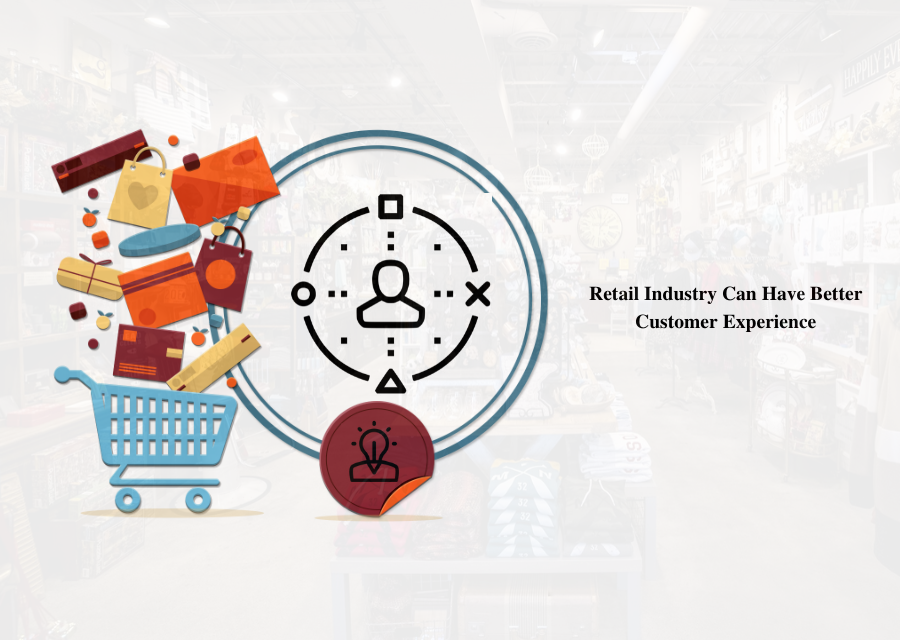<p>Retailers and customers are dependent on each other. Retailer shares strong bond with his customers that tends customers to revisit the stores multiple times, create brand loyalty, and convert sales. The entire retail industry owns a massive data of customers that includes information related to personal characteristics, spending habits, lifestyle, income, and several other things. A CRM for Retail is more than just a database of transaction and contact information. It is system software that motivates retail management staff to have better customer experience. It becomes possible with the right way of accessing software and using its features.</p>
<p>Integrated CRM with data being accessed from POS system can give you insight of customers, marketing campaign performance, sales benchmarks, and KPIs. These systems are designed in a way to predict future trends and offer a unified platform to employees for customer service. The CRM software solution is not just about building strong relationship with the customers, it is also used enhance ROI with better business opportunities.</p>
<h2>How to know if CRM is made as per the retail requirement?</h2>
<p>The customer-relationship management software should be able to support the seamless Omni channel strategy used by retail industry and must be able to measure the value of distinct market segments. When a CRM is intended for a retail business, it should handle loyalty programs and share of wallet. It should also provide post sale support to customers and collect review for improvements and changes.</p>
<p>A premium software solution of CRM tracks the effectiveness level of the marketing campaigns to get better foot traffic and sales. It also analyzes the performance of the employees to initiate planning. CRM systems used in retail businesses cannot work alone. These systems require integration with other systems used by retailers, such as accounting, SMS system, POS, <a href="https://webmenza.com/" target="_blank" rel="noopener noreferrer">Tech websites</a>, etc.</p>
<h3>How Retail Industry Leverages CRM System?</h3>
<p>There are plenty of actionable strategies that can be made with the help of CRM for Retail. Here in this post, we are sharing top ways by which retailers can leverage CRM –</p>
<ul>
<li><strong>Marketing ROI</strong></li>
</ul>
<p>Retail CRM allows employees to add custom tags and fields with contact details. These are the certain customer attributes that are not built within the CRM. Identifying this correlation enables retailers to target <a href="https://www.take2strategy.com/digital-marketing-consultant/" target="_blank" rel="noopener noreferrer">marketing resources</a> to customers as per the interest and requirements for better marketing ROI.</p>
<ul>
<li><strong>Profitable customers </strong></li>
</ul>
<p>More data means extra opportunities and pitfalls. Variety of data helps in detecting the cost per customer. This metric includes marketing expenses and the customer service cost which is compared with the money spent by the customer. This helps in finding the most profitable customer for retailer.</p>
<ul>
<li><strong>Better in-store experience</strong></li>
</ul>
<p>Retailers who own a physical store can have better in-store experience with retail CRM software. The CRM data used by retailers provide demographic traits and related spending behavior and desired preferences of the customer.</p>
<ul>
<li><strong>Enhanced productivity with automation</strong></li>
</ul>
<p>The skills and time of the employees drive the productivity. When CRM data is used by the retailers, it initiates automation and boosts productivity. The retail CRM is intended to automate data entry and notification and tally reminders to save employees’ time.</p>
<p>CRM software services can improve sales and profits of the retail business. The retail operations of small and big organizations vary from each other. Small retail business manages and creates customer database using the invoices or by simply asking customers. Retail stores cannot avail such luxuries since the nature of their customers is different and unwilling to share any contact detail.</p>
<h3>How CRM Impact on Retail Industry?</h3>
<p>There is no industry left untouched by the CRM. Every industry in the business world is enjoying the positive impact of the software and making more profits. Here we got a list of <a href="https://www.aegissofttech.com/microsoft-crm-development-services.html" target="_blank" rel="noopener noreferrer">Microsoft CRM Development effects</a> on retail business-</p>
<ul>
<li><strong>Segmentation</strong></li>
</ul>
<p>CRM gathers data of the customers related to preferences and their demographic. Retailers can use the data to divide the market and customize their approach for each group of the buyers. The impact of this segmentation will be based on the CRM data. This will help in making major and minor adjustments to the retail strategies to fit in customer requirements.</p>
<ul>
<li><strong>Promotion</strong></li>
</ul>
<p>The data collected within the CRM system helps in targeting customers individually along with market segment. When a retailer finds the customer has visited his site and searched for a specific product, retailer can offer discounts on those products and send it via mail. This is how CRM eliminates unwanted promotions and initiates preferred offers for the recipients.</p>
<ul>
<li><strong>Purchases</strong></li>
</ul>
<p>In a CRM system, retailers can keep the records of their customers purchase and service calls. They can easily keep track record of the products each time purchased by individuals and if there is any issue with the purchase. With the help of these details, retailers are able to share special offers with their customers when the final purchases are made to complete product lifecycle. This type of strategy keeps the products on top of the preference list of the customers.</p>
<ul>
<li><strong>Retention</strong></li>
</ul>
<p>The ultimate impact of using CRM in retail business is the enhanced rate of retention of customers. This further can be improved by integrating customer loyalty programs with CRM systems. This will help in creating reward and bonuses which help in retaining the valuable customers.</p>
<p>Customer Relationship Management System not just applied for enhanced relationship with the customer. Retailers rather used the software to gain more profits and loyal customers for their business.</p>
<p> ;</p>

CRM for Leveraging – Retail Industry Can Have Better Customer Experience
